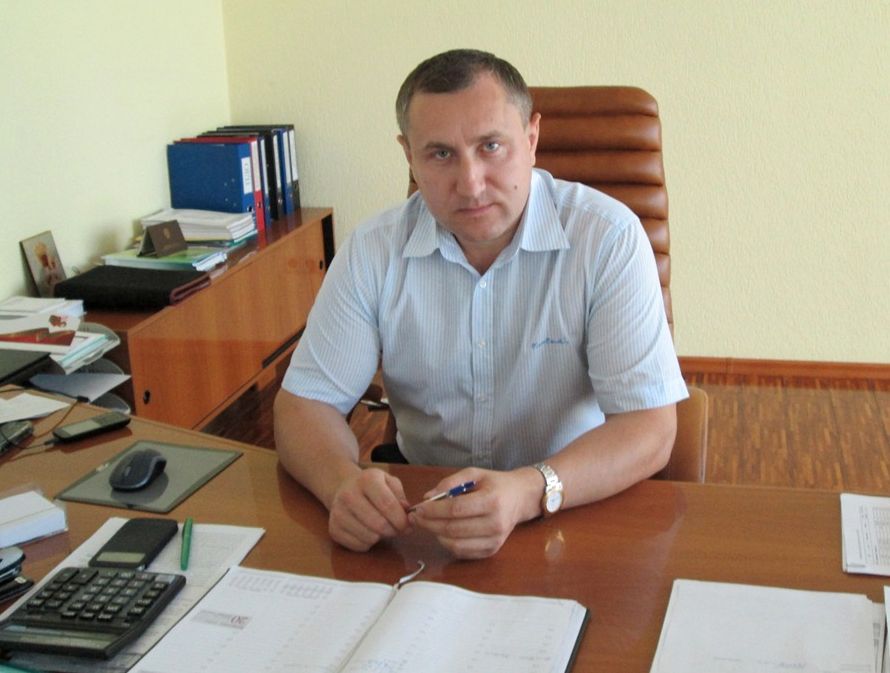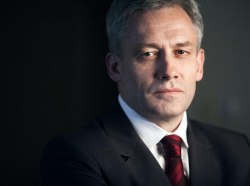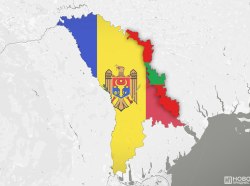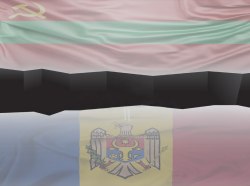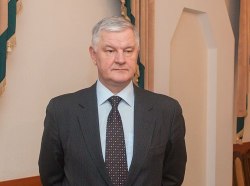Since 24 August 2015 the chief of Moldova's border police department banned Pridnestrovian vehicles from crossing the Moldo-Ukrainian border. A Novosti Pridnestrovya News Agency correspondent has talked about the current situation in this sphere with the advisor to Pridnestrovie's prime minister, head of the expert group on transportation and road facilities, Vladimir Trandasir.
Novosti Pridnestrovya: Mr Trandasir, what is the reason for the ban introduced by Moldova?
Vladimir Trandasir: It is difficult to understand Moldova's intricate motives. The ban was imposed on Pridnestrovie without prior consultation or information. In fact, Pridnestrovie learnt about Moldova's restrictions from media outlets and Pridnestrovie's Association of Transporters and Road Workers. Hardly can we say that Moldova shows good neighbourly and partnership relations, but the issue has to be solved.
On the day when the ban was put, telephones kept on ringing in the presidential executive office, in the transportation department of the Ministry of Regional Development, in Priddnestrovie's MFA. There were dozens of calls. Pridnestrovian transportation companies and citizens were very concerned over the imposed ban; passenger transportation on several international routes was cancelled.
It should be recalled this is not about the introduction of some new prohibitions, but the implementation of the decisions Moldova tried to introduce back in 2008−09, but it was not supported by Ukraine then. Now, as far as we can judge, Ukrainian partners are not too enthusiastic about Moldova's new restrictions, either.
Moldova is trying to explain these suppressive measures through media outlets by certain international obligations. We have already met such practices within expert working groups, but there is information that this time it was the individual decision of the head of Moldova's border police. The point is that Moldova's chief negotiator, Victor Osipov, has allegedly learnt about the ban from the media or even from the statement issued by Pridnestrovie's MFA on the following day.
Novosti Pridnestrovya: What is the current situation surrounding this ban? How does it affect citizen's freedom of movement?
Vladimir Trandasir: The ban on crossing the Moldo-Romanian border for the vehicles registered in Pridnestrovie was put back in 2008, now Moldovs'a border police has extended this ban to the Moldo-Ukrainian border. Passenger transportation has been cancelled on several international bus routes. Citizens cannot cross the border between Moldova and Ukraine in their own cars.
As for the Ukrainian-Pridnestrovian border, which is crossed by the majority of routes, transport movements are not banned here. In this regard, I'd like to express gratitude to Ukraine that has not joined the Moldovan sanctions.
Novosti Pridnestrovya: Mr Trandasir, what measures are being taken in this regard to stabilise the situation?
Vladimir Trandasir: We are constantly in touch with the management of Pridenstrovie's transportation companies, and they are providing us with current information. We also work closely with Pridnestrovie's Ministry of Foreign Affairs, which has made a number of statements concerning this issue and more than once requested Moldovan and international partners to lift the ban imposed outside a negotiation process.
The abolishment of restrictive measures was highlighted as a priority at the meeting of the political negotiators, which took place last week. The Moldovan delegation gave first comments on the situation and expressed its understanding of the problem and willingness to solve it as soon as possible. I hope, they will commit to the principle «practice what you preach» because the prolongation of the restrictions may cause tough countermeasures on the part of Pridnestrovie.
This Monday, Pridnestrovie's MFA, in concurrence with me, proposed Moldova to hold a special meeting of the experts working groups on transport development and road facilities to discuss the abolishment of the ban on crossing the Moldo-Ukrainian border for Pridnestrovian cars. The meeting was to take place on 18 September. Unfortunately, Moldova has refused to participate in the meeting without giving any reason.
We interpret this refusal as a very troubling sign, which does not contribute to a dialogue. If the meeting fails to take place in the nearest future and the parties fail to substantially and openly discuss and clarify the situation, and agree on the abolishment of the ban, this may seriously affect the freedom of movement of the Moldovan citizens crossing Pridnestrovie.
In this respect I'd like to call on our neighbours for a dialogue, to return to the negotiating table and solve all transportation issues in a peaceful and mutually beneficial way rather than through mutual bans and pressure.
Moreover, we have a recent example of the parties' ability to compromise, i.e. the agreement reached at a top leadership level and at a level of insurers on mutual recognition of MTPL insurance policies. It is significant that one of the most important articles of this agreement provides for the insurance of car owners' liability at the place of their registration. That is, Pridnestrovie's registration and insurance policy are sufficient for Pridnestrovian cars to enter Moldova.
We believe the same mechanisms must be applied to the Pridnestrovian vehicles crossing Moldova's state border. We count on Moldova's mature, responsible and rational approach in this sensitive issue.

